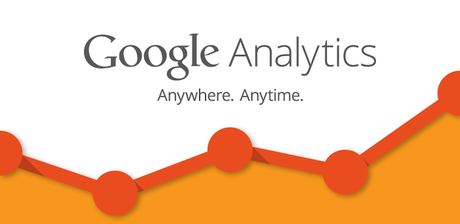Get Your New Blog Posts Indexed Fast with These Tricks. In SEO, we usually talk about optimizing blog posts for search engines, but sometimes it's worthwhile to step back and think about how to get your site into the index.
In an eternal quest to index all human knowledge, Google has thousands of spiders crawling the internet, looking for new pages and changes to old pages.
Google's search index isn't hard to get into. There isn't a high entry barrier. A riddle does not need to be solved or a guardian defeated. It's just a matter of being noticed.
In an age when there are billions of websites, it can be difficult to get noticed. You know how difficult it is to start a website without putting much effort into it if you've ever tried.
Today people don't stumble across websites by chance; they are found through links or searches, and search must find them some way. What can you do to get your site indexed, or to make the indexing process faster and better?
Google does not have a "submission form," as old internet rumors claim. This is a common scam: scammers promise to have your site listed in Google and "dozens of other search engines", as well as showing you search results with your site listed, even though nothing has been done. Do not be fooled by that scam, my friends!
We'll look at some ways to make sure Google finds and indexes your website.
There Are Reasons To Be Concerned:
A site that isn't indexed isn't visible on Google. Considering Google accounts for a significant percentage of traffic to most sites, that's a big deal. Delay in indexing, however, is worse.
There are times when Google only indexes your site once a month and just puts it on the back burner. This means you can post a new article on your blog, but it will languish for days or weeks before it becomes visible.
There may have been a better way to cover the content during that time, or you could have declined in newsworthiness, or your content might not be as relevant as before.
You can use the methods listed below to not only make sure your site ends up in the Google search index but to make sure you're getting quick indexing passes, so your indexed version is always up-to-date.
To check if your site has been indexed, type "site:yourdomain.com" into Google and see what comes up. In addition to the Google search console, Google recommends that you check it as well, as it is a great way to check search penalties and other issues.
As step zero for this list, you can add "link your site to your Google search console account". By adding a site to the Google search console, you not only verify ownership and gain access to various tools, but also tell Google that it exists.
Indexing your site can be affected by many different factors. Below are a few you can check:
- Check your .htaccess file for bad redirects and bot disallows which could ban Google's search spiders.
- To ensure that your site isn't being indexed, check your robots.txt file.
- If the site doesn't render and isn't accessible, check it in different browsers and with different levels of script blocking.
- Make sure your web design does not use iframes or other outdated formats that can cause indexing problems.
When a website is under construction, I often see blanket no index directives added to the page without remembering to remove them once the site goes live.
Google penalizes you in two ways. Generally, the implied penalty, or search index adjustment, occurs when Google makes changes to its algorithm and demotes a site as a result. This isn't a problem for sites that aren't indexed.
Google search console provides information about manual actions, which can be viewed as well. The search console should be linked to your property so you can see information about your site, as mentioned above.
If you want to learn what kinds of penalties you might be facing and how to fix them, this article is a great resource. The search engine will be unable to index your site if it uses any techniques or strategies that trigger a penalty.
There is a benefit to checking your account to see if any manual actions apply, and correcting them if necessary.
I lied above when I said Google does not have a submission form. Google has one way for your site to be included in its index, and that is to submit your sitemap.
A sitemap is basically just a list of every URL on your site, along with some basic information such as when it was last updated.
In addition to finding out if anything has changed on your site since Google last indexed, this information is extremely useful for Google.
It's not the only way for them to check your site - you might not have updated your site map - but it's a great way for them to see your entire site in one place.
There are several ways to create a sitemap, but you will need to submit it to the Google search console. All you have to do is provide them with a link, and keep your sitemap updated.
Getting your entire site indexed this way will allow Google to know when pages are added and updated, so the most recent data can be indexed.
Google Analytics is a very powerful tool if you aren't already aware of it. You can obtain valuable information about your traffic and website performance from this free tool.
Install your tracking code on your site by signing up for Google Analytics and following their instructions.

Using Google Analytics is a great way to ensure that Google has your entire site indexed since Google needs to be able to see your site to track information about it.
Google doesn't know about a published page - or you forgot to include the tracking code - so if you don't see the data for it, you have a problem that needs fixing.
Appearing in search indexes is a big part of gaining organic exposure on the web. Backlinks play a major role in this. Nobody will be able to find your site if you don't link to it.
In social networks, links are either worthless or very minimal, so they are not the best place to obtain backlinks. Although they are not indexed by Google, they are still useful for finding new content.
A company or brand should at the very least create profiles on Twitter, Facebook, and LinkedIn. Some niches may benefit from other social networks such as Pinterest and Instagram.
You can join and leave these social media networks whenever you like.
Social media marketing is an effective strategy, but you should at least make sure that the profiles you maintain have accurate information for anyone who chooses to look you up.
Also Read:Links outside of social media and other places where you have control and the freedom to post them can be difficult to build.
It takes reputation, content, publishing links from editorials, and on top of that, those links must be followed and not followed. Getting links attached to great content can be a great way to get links.

You need to find high-quality sites to publish on, and you need to write for them, as well as get those followed links. Nofollow links and mentions of your brand will also work, but they will be less effective.
The purpose of blog directories is to serve as hubs for users to find relevant content for a particular niche they're interested in by gathering links from other sites.
Most people nowadays just use Facebook or Twitter to communicate in that way. You can still post your link to directories to help get backlinks and promote your site.

Due to the spammy nature of many directories, I highly recommend being cautious when submitting to them.
When you have the basics down like links and content, one of the top metrics Google cares about is website speed. They even offer a tool so you can analyze your website to make sure it is loading quickly.
The PageSpeed Insights tool can give you valuable information about how quickly different parts of your website load, and suggest fixes for errors or ways to accelerate your site.
You will not necessarily be indexed faster by making your site faster, but it will give you a little boost in your initial position. You can also test if there is anything causing Google's bots trouble or preventing them from loading your website.
PageSpeed Insights has two tabs on the toolbar: one for mobile and one for desktop. Also, mobile is the default mode by default.
Due to a large number of people using smartphones and tablets to browse the web today, Google is putting more emphasis on the mobile web.
There are other ways to adapt a site for different devices, though a responsive design is ideal. You will stand out from similar competitors with a fast, responsive design.
Regularly publishing content encourages Google to come back for more. You're likely to catch their attention if you publish a post every week, and they will check back frequently to see when new content has been published.
Indexing is improved in two ways when you publish new content. In addition, it allows you to add internal links to your website, which ensures that Google can find every page.
T he more content you have to index, the more quickly you'll be indexed, which you can use as a barometer.
Make sure you check the search console and analytics page to see what they say about the new pages that you published.

